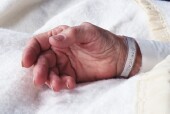
MONDAY, April 8 (HealthDay News) — Older people who are abused or mistreated face much higher odds of being hospitalized than those who are not, a new study confirms.
“It is understandable how a vulnerable older person experiencing abuse may fail to prioritize the prevention or care of their health conditions,” noted one expert not connected to the study, Dr. Theresa Soriano, of the Icahn School of Medicine at Mount Sinai in New York City.
“If the older person depends on an abusive family member or caregiver, they may be victim to missed doctor’s appointments, inadequate diet or medication adherence, and increased stress, all contributing to poor control of any medical conditions and increased hospitalizations,” noted Soriano, who is an associate professor of medicine in the department of geriatrics and palliative care at Mount Sinai.
In the study, U.S. researchers found that elderly people who suffered psychological abuse, financial exploitation, caregiver neglect, or two or more types of abuse were hospitalized more frequently than those without reported elder abuse.
A team led by Dr. XinQi Dong at Rush University Medical Center and Dr. Melissa Simon at Northwestern University Medical Center analyzed information on almost 6,700 older adults who took part in the Chicago Health and Aging Project.
Using reports from social services agencies, the study’s authors identified 106 older people who experienced abuse between 1993 and 2010.
After reviewing information compiled by the U.S. Centers for Medicare and Medicaid Services, the study’s authors found the annual rate of hospitalization was more than doubled for those who reported elder abuse versus those who did not.
Another expert said elder mistreatment is a growing problem.
“Today, approximately 10 percent of older adults are victims of abuse in the United States, and the trend is increasing,” said Dr. Gisele Wolf-Klein, director of geriatric education at the North Shore-LIJ Health System in New Hyde Park, N.Y.
In the new study, “psychological abuse and caregiver neglect were the principal significant culprits for hospitalization,” she pointed out. According to Wolf-Klein, prior studies have echoed these findings and have suggested a need to spot elder abuse early, before seniors require treatment in an emergency department.
“Recognition of abuse in its specific subtypes, whether it be psychological, physical, financial or neglect, as well as appropriate reporting to social services agencies remains a critical challenge for health care professionals,” Wolf-Klein said.
“The ultimate goal for our society is to enable these social services agencies to provide overwhelmed caregivers of older adults with the support they need on a daily basis, in order to successfully manage the complex demands of frail patients totally dependent on others and painfully vulnerable during their last years of life,” she added.
The study was published April 8 in the journal JAMA Internal Medicine.
More information
The U.S. National Center on Elder Abuse provides more information on elder abuse.

